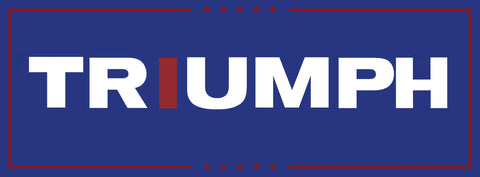
How to use nominative determinism to shape your business
Every company wants to secure the trust of their audience before the first click. That’s why choosing a domain name that accurately represents your brand identity and industry is so important. However, a good business name should be much more than just a descriptive brand label.
If you’ve stumbled across the theory of nominative determinism, you may have already wondered if and how your own name has influenced your line of work. So what about your business name? In this article, we’re going to look at how business names can spark subliminal emotional triggers, affecting the success and of your venture.
So what is nominative determinism?
Also referred to as ‘aptronyms’, this is the theory that people tend to gravitate towards professions, actions and lifestyles by virtue of their name. It is was first spelled out by New Scientist journalist John Hyland, and also has something of a history with psychologist Karl Jung, who suggested in his 1952 book Synchronicity that there was “sometimes quite [a] grotesque coincidence between a man’s name and his peculiarities.”
This hinges on the idea that we are driven to fulfil the prophecy of our names. So far, surveys have struggled to come up with something concrete, but when we think of the cases of Belgian footballer Mark De Man, poker champion Chris Moneymaker and gardener Bob Flowerdew, there seems to be a little more to it than chance.
How do names influence our behaviour and outcomes?
The idea behind the research is that we feel an emotional warmth towards our own names, and that is what attracts us (albeit subliminally) to activities that sound similar. Social psychologists sometimes refer to this as “implicit egotism”. If your name is Lewis, you might feel a particular affinity for the Scottish isle, and make a bid to relocate. If our surname is Barber, we might embark on a career as a hairdresser.
Researchers analysed the initials of people donating money for a number of Atlantic Ocean hurricanes that hit the US between 1998 and 2005. They discovered that people were significantly more likely to donate more, and do so more frequently, if the name of the hurricane shared the same initial as their own. Imagine if a business could tap into that!
The effects of this phenomenon are often comical. In fact, Hyland was drawn to his conclusion on the theory of nominative determinism after coming across a scientific paper by authors JW Splatt and D Weedon on the subject of incontinence. Durex’s public relations officer in France was one Mlle Cecile Hardon.
The theory was also batted about when business mogul Donald Trump rose to prominence within the Republican Party to run for President of the United States. To anyone in the UK, it seems a little odd that someone whose name is basically a moniker for breaking wind would earn such revere, but across the pond, to ‘trump’ someone means to surpass or beat. It’s used in card games (or ‘Top Trumps’) when a particular set becomes dominant. Its meaning is thought to derive from ‘triumph’.

How can I use this to my advantage when naming my business?
It’s not always about our own names, but the names of those in whom we put our faith and confidence. Storytellers use names to convey characteristics and prompt emotional responses from the reader. When JK Rowling created Professor Snape, the intention was for us associate him with snakey and sneaky behaviour. Our animal business names also draw on this psychology; 'Lyonic' for instance is imbued with the qualities of a Lion: strength and dominance, both of which are desirable business traits.Nominative determinism doesn’t always work in everyone’s favour: One Dr Reaper was encouraged to change his name after patients seemed reluctant to put themselves in his care, and countless others have claimed their names do them a disservice.
A simple lesson healthcare brands in particular can take from this is to avoid names with negative associations, and choose names which play on words associated with care and scientific progress. Such as 'Clarivis' which, derived from the words ‘clarity’ and vision’, is optimistic and has the soft, gentle phonetics suitable for the care sector.
A large part of branding is about expectation; you would not expect a company called ‘Keywright’ to tailor men's suits, and therefore you may be less inclined to use their service. Use the theory of nominative determinism to embrace the power of suggestion. That’s the key to giving your business maximum appeal.
As we’ve said in our blog time and time again, a strong business name is never overly descriptive. Subtle, suggestive, clever names are much more likely to stand the test of time and stand out against market competitors.
The big message that brands can take from the idea of nominative determinism is that your customers want a familiar quality—something that makes them feel confident they’re making the right decision to use that service.